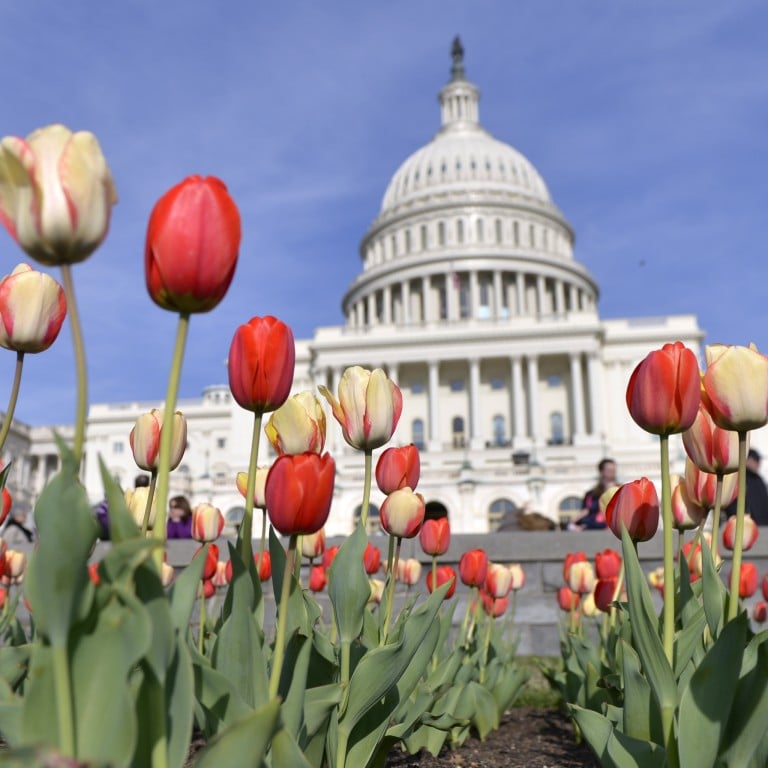
US Congress pokes Beijing with ‘Liu Xiaobo Plaza’ Washington embassy address proposal
The House Appropriations Committee has included in its next year State Department budget a proposal to rename the stretch of road in front of the embassy “Liu Xiaobo Plaza”.
China may soon have an unhappy address for its embassy in Washington.
The House Appropriations Committee has included in its next year State Department budget a proposal to rename the stretch of road in front of the embassy “Liu Xiaobo Plaza”.
Liu, a writer, was jailed over his involvement in Tiananmen Square. Later, in 2009, he was slapped with an 11-year sentence for subversion after spearheading a bold petition for democracy reforms.
China’s government voiced outrage when he won the Nobel Peace Prize two years ago.
China has censored any mention of the Nobel after Liu won, and put his wife under house arrest.
The amendment, proposed by Republican congressman Frank Wolf, says the new name should apply for US postal code purposes. The embassy’s street address would be Number 1.
In a statement, Wolf says the change would highlight Liu’s “unjust imprisonment”.
In the 1980s, the street in front of the Soviet Embassy in Washington was named after dissident Andrei Sakharov.
After US lawmakers proposed the street renaming several weeks ago, a Chinese foreign ministry spokesman warned it would be a "provocative action" and called Liu "a man who has violated Chinese laws".
It was Phil Mendelson, head of the US capital's council, who introduced a resolution to rechristen the street after the Nobel laureate in hopes of freeing him.
Mendelson's resolution had called for a vote by the US Congress, where the proposal enjoys support across party lines.
Renaming the street after Liu "would raise the price on China for imprisoning dissidents and democracy advocates like Liu Xiaobo", David Keyes, executive director of the group Advancing Human Rights, said.
"It's symbolic and it may seem small, but if we can remind every Chinese diplomat around the world about the cost of their tyranny and if we can give hope to dissidents throughout China's prisons, I think it can play a significant role in pressuring China to release political prisoners and open up," he said.
Additional reporting by Agence France-Presse

